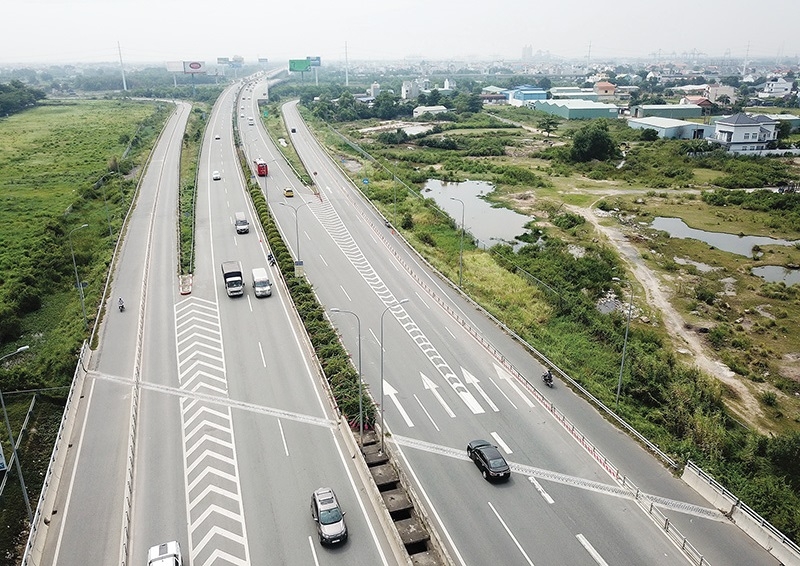Axing red tape to boost investment
 |
| By reducing bureaucracy in investment disbursement, Vietnam plans to speed up growth, Photo: Le Toan |
Prime Minister Nguyen Xuan Phuc cited the central province of Nghe An at last week’s government-led teleconference on public investment disbursement as one of the rare cases in the country that has been successful in boosting implementation of state-funded projects in the first half of the year.
Nghe An was assigned VND6.2 trillion ($269.5 million) as public investment capital for 2020, 61.7 per cent of which was disbursed in the first six months.
“How could Nghe An manage that? It is because its government has not been bureaucratic in this task. It has assigned one deputy vice chairman from the provincial People’s Committee to be exclusively in charge of supervising public investment,” PM Phuc said. “This experience cannot be seen in many localities now, making it difficult for accelerating a rise in public investment disbursement.”
The committee’s Chairman Nguyen Duc Trung reported that Nghe An considered public investment disbursement a prime political task. “We have established a special taskforce to frequently examine the speed of implementing state-funded projects and solve thorny issues like site clearance. Moreover, we organise a meeting on this topic every month, with solutions taken immediately to remove all difficulties. For example, in July we have transferred capital from some ineffective projects to effective ones.”
The northern province of Ninh Binh also made strong efforts in disbursing public investment, with 79.2 per cent of the assigned VND2.9 trillion ($126 million) for 2020 realised in the first half of the year. Pham Quang Ngoc, Vice Chairman of Nghe An People’s Committee, said that all information for implementing state funding in the province is published in the media, with a group of representatives from the province’s departments established to boost disbursement.
PM Phuc said that only several localities have applied such a special model in public investment disbursement as Nghe An and Ninh Binh since early this year, making the country as a whole finding it difficult to reach the desired rate of disbursement.
“I know that in addition to many other objective causes, in many ministries and localities, leaders are not so interested in boosting public investment disbursement. This has badly affected the economy and people,” he said. “So we will have to impose strict sanctions on them.”
In 2020, about VND633 trillion ($27.5 billion) worth of public investment must be disbursed until the year’s end. This sum includes VND470.6 trillion ($20.46 billion) assigned for 2020 and VND162.4 trillion ($7 billion) transferred to 2020 from 2019.
According to the Ministry of Finance, in the first half of 2020, the disbursed sum was VND159.34 trillion ($6.93 billion), hitting 33.9 per cent of initial plan, including domestically-sourced capital of VND145.27 trillion ($6.3 billion) – reaching 37.55 per cent of the initial plan, foreign capital of VND7 trillion ($304.3 million) – hitting 12.52 per cent of the initial plan, and capital from the National Target Programme of VND7 trillion ($304.3 million), touching 25.85 per cent of initial plan.
“Amid great difficulties in attracting private investment, boosting public investment disbursement is one of the key measures to spur on economic growth and create employment,” PM Phuc stressed, citing the General Statistics Office as calculating that a 1 per cent rise in public investment will help Vietnam earn a 0.06 per cent rise in GDP.
In the first half of the year, the economy grew only 1.81 per cent on-year, and 30 ministries, central agencies, and localities hit a disbursement rate of under 20 per cent. Of which, the rate was under 5 per cent for seven ministries and central agencies. Three ministries and central agencies and 12 localities reached a rate of 45 per cent.
“However, so as to boost such disbursement, red tape among leaders of localities must be removed,” the prime minister said. “Otherwise, we will not be able to achieve higher economic growth and ensure social security.”
He demanded that all projects with slow disbursement have to see their investment capital transferred in August, and leaders of ministries and localities with such projects may face possible punishments.
What the stars mean:
★ Poor ★ ★ Promising ★★★ Good ★★★★ Very good ★★★★★ Exceptional
Related Contents
Latest News
More News
- Hermes joins Long Thanh cargo terminal development (February 04, 2026 | 15:59)
- SCG enhances production and distribution in Vietnam (February 04, 2026 | 08:00)
- UNIVACCO strengthens Asia expansion with Vietnam facility (February 03, 2026 | 08:00)
- Cai Mep Ha Port project wins approval with $1.95bn investment (February 02, 2026 | 16:17)
- Repositioning Vietnam in Asia’s manufacturing race (February 02, 2026 | 16:00)
- Manufacturing growth remains solid in early 2026 (February 02, 2026 | 15:28)
- Navigating venture capital trends across the continent (February 02, 2026 | 14:00)
- Motivations to achieve high growth (February 02, 2026 | 11:00)
- Capacity and regulations among British areas of expertise in IFCs (February 02, 2026 | 09:09)
- Transition underway in German investment across Vietnam (February 02, 2026 | 08:00)

 Tag:
Tag:




















 Mobile Version
Mobile Version